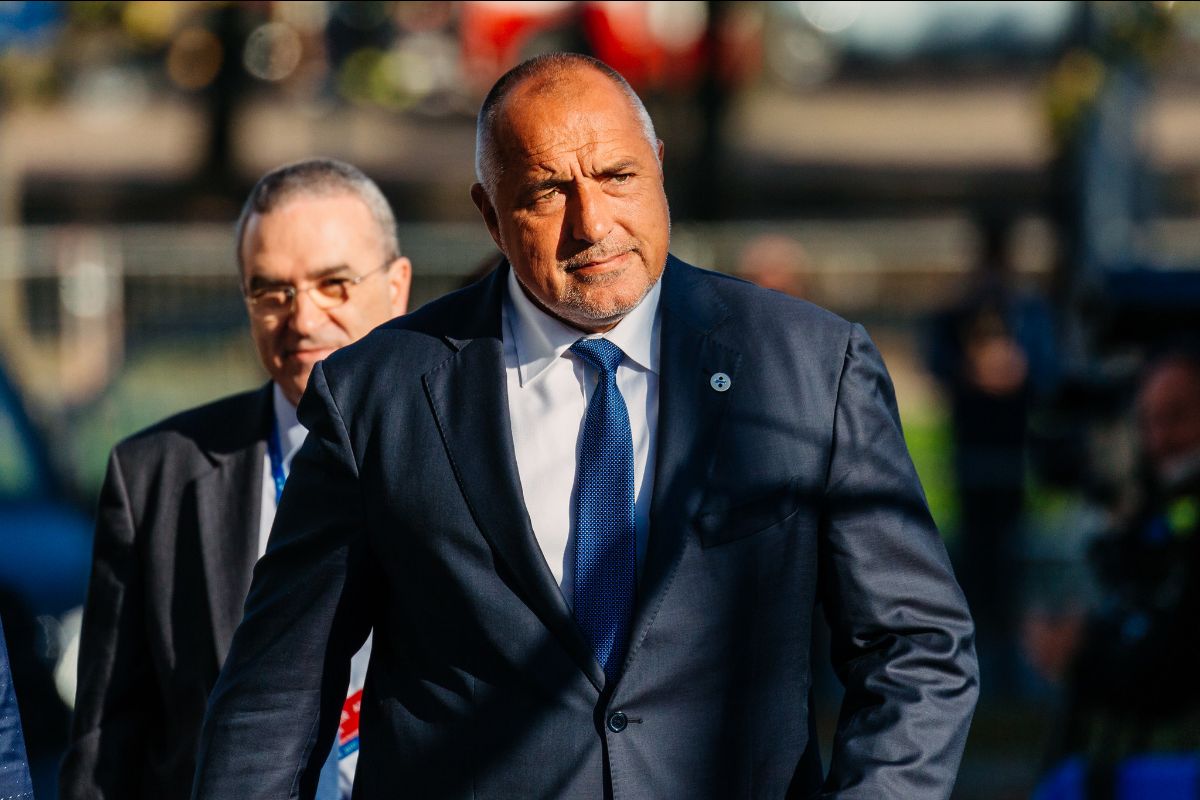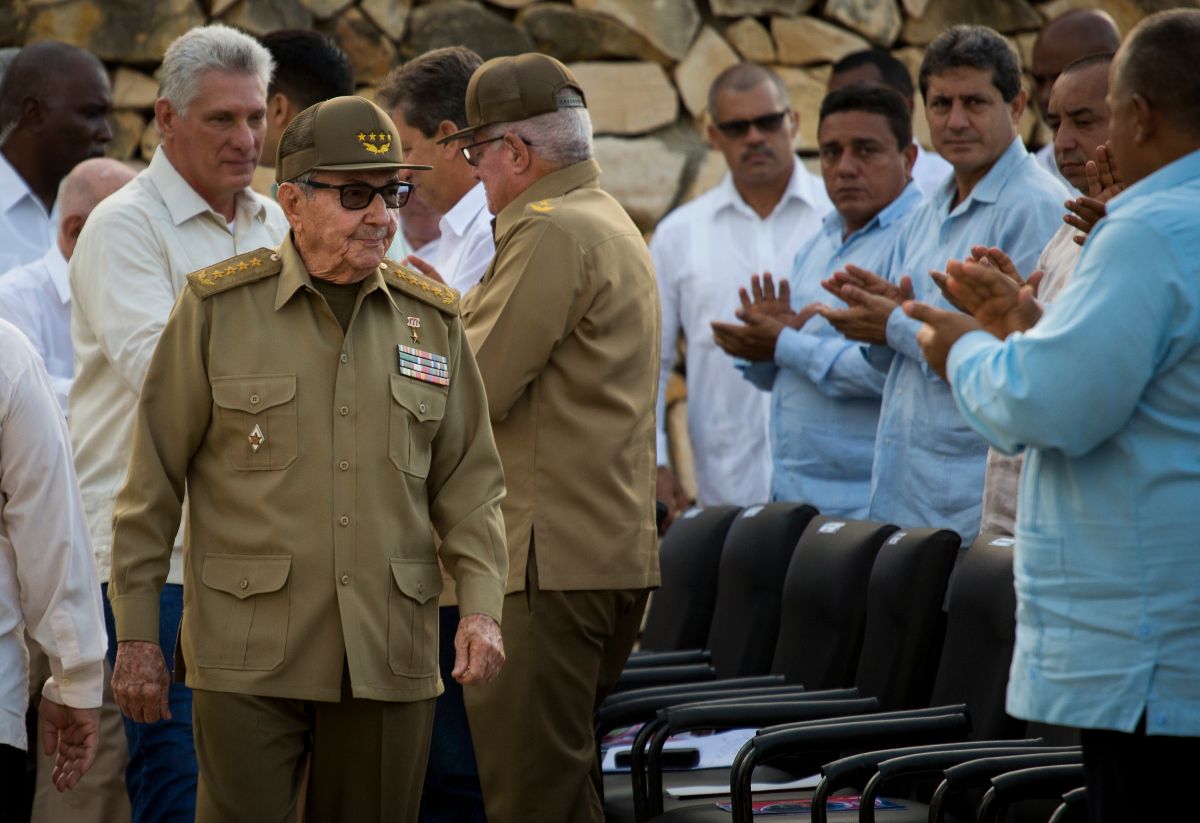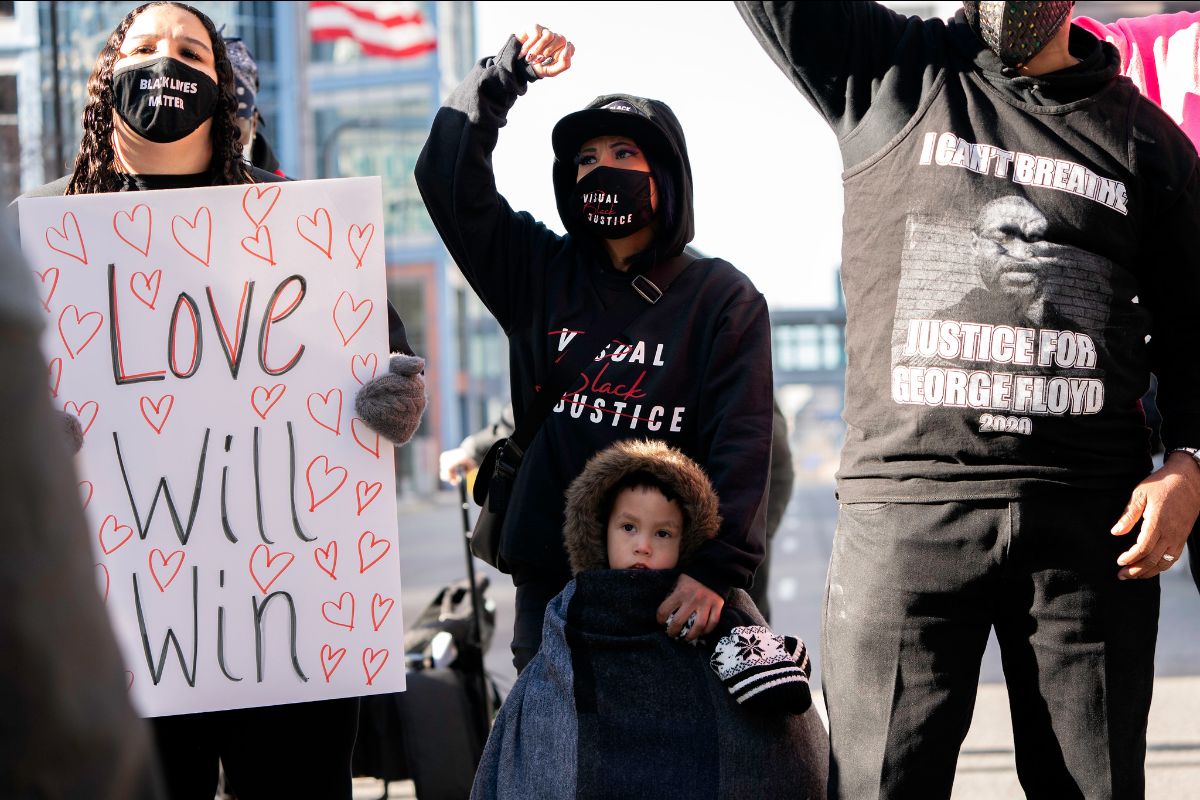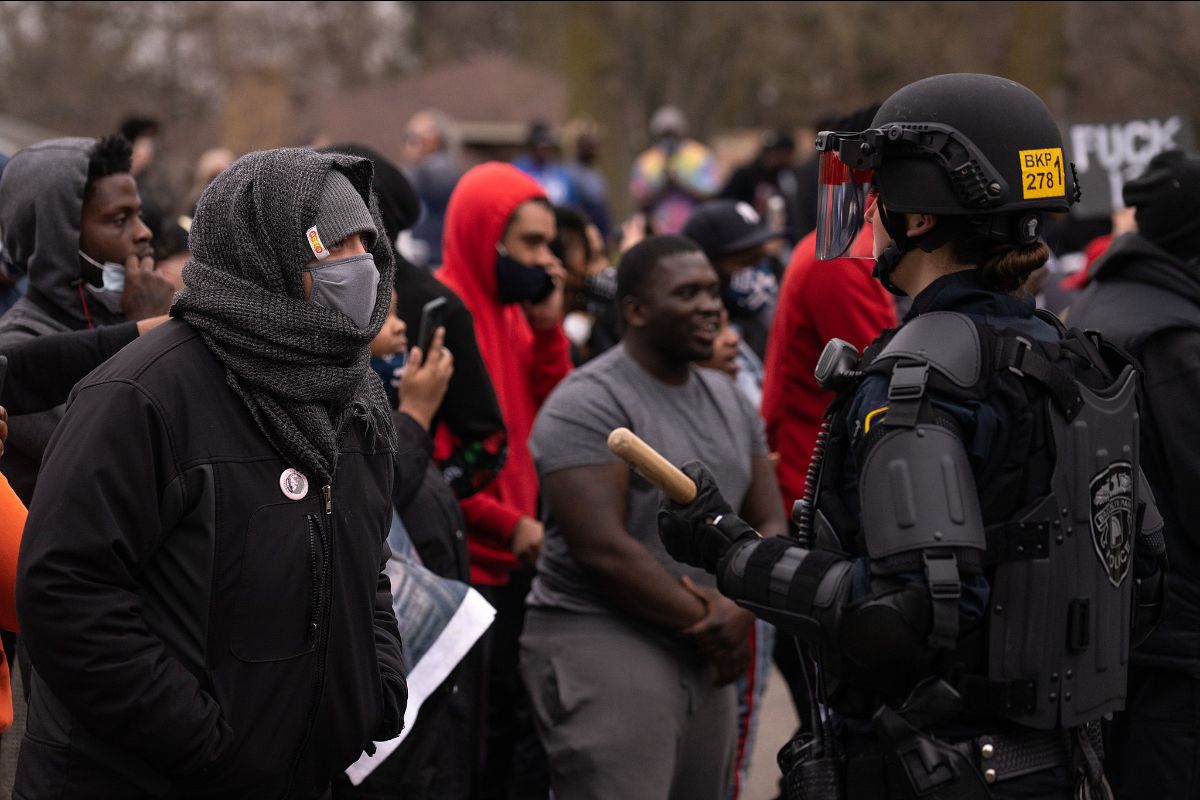Welcome to Factal Forecast, a look at the upcoming week’s biggest stories and what they mean from the editors at Factal. Published every Thursday, Forecast is a newsletter to help you get a jump-start on the week ahead. Get it in your email by subscribing for free.

A look ahead:
April 15/ Bulgarian parliament convenes: Bulgaria’s new parliament will meet for the first time Thursday since the April 4 election left no party with a working majority.
- What’s happened so far: Almost a third of seats in Bulgaria’s new parliament are occupied by lawmakers from parties which did not exist at the previous election, after a wave of protests over institutional corruption in 2020 gave rise to several new populist organizations. There Are Such People, which was set up by TV host Slavi Trifonov, earned 17.81 percent of the vote, coming second to Prime Minister Boyko Borissov’s GERB party. After he is handed a mandate by President Rumen Radev, Borissov has seven days to produce nominations for a new cabinet or the mandate to form a government will pass to Trifonov.
- The impact: Borissov has declined his seat in parliament and said he will not lead the next administration, making the path to a new government unclear. If the fragmented legislature is unable to agree on nominees for prime minister and key cabinet positions, a new election will be called, which would most likely coincide with the presidential vote due to take place in the fall.
April 16/ Raul Castro steps down as ruler of Cuba: Raul Castro, the youngest brother and successor to late Cuban ruler Fidel Castro, will step down as leader of the Communist Party during the eighth congress, which will convene Friday in Havana.
- What’s happened so far: While it’s clear the congress will meet in Havana — the island’s capital and current epicenter of coronavirus infections — as it does every five years, it’s still unclear if the meeting will be held virtually. Castro will delegate all powers to Miguel Diaz-Canel, as he announced in 2018 when he handed over the presidency of the country. He also suggested other revolutionaries from his generation should retire, too, though it’s unclear if that will happen. The total transfer of powers from Castro to Diaz-Canel marks the end of an era in Cuba’s history, but some argue the new generation of leaders will not change the status quo.
- The impact: For the first time since Fidel rose to power, the generation born after the 1959 revolution will take the reins of the political sphere. It’s also the first time a civilian will be in charge of the only party authorized in the country. The topics of debate and the decisions made during the four days of meetings will show whether Diaz-Canel will follow in the steps of the previous administration or begin a progressive opening of the country.

April 16/ Universal Studios Hollywood reopens: Starting Friday, California’s Universal Studios Hollywood theme park will reopen to state residents in limited party sizes as the state’s coronavirus-related restrictions are lifted.
- What’s happened so far: California’s theme parks have been closed since last year, but the state announced last month that beginning April 1, parks would be allowed to reopen with restricted attendance. State authorities have faced ongoing pressure from theme park operators to allow reopening, especially as Florida counterparts reopened as early as June 2020.
- The impact: California’s case numbers are staying relatively low, with a little over a third of Californians having received at least one vaccine dose so far, but whether theme parks successfully mitigate potential coronavirus spread could affect the governor’s optimistic plans to “fully reopen” the state and its economy by June 15.

April 17/ Funeral of Prince Philip: Britain’s Prince Philip will be laid to rest on Saturday following a service at Windsor Castle, just west of London. In keeping with his wishes and coronavirus restrictions, the funeral will be a subdued, private affair rather than the televised display of pageantry the world often associates with the Royal Family.
- What’s happened so far: Following his death at Windsor Castle, messages of condolence were sent to the Queen and floral tributes were left outside Buckingham Palace as plans were announced for his burial. Members of the public have been urged not to gather due to coronavirus restrictions and asked to sign online condolence books instead.
- The impact: The events of the day aren’t classed as a state funeral, rather a ceremonial funeral, so Prince Philip will not have the traditional lying in state, nor will there be a procession with a gun carriage. Instead, the Duke of Edinburgh will be driven through Windsor Castle’s grounds to his final resting place in a custom Land Rover hearse that he helped design.
April 18/ Cape Verde general elections: The seventh general elections since Cape Verde achieved independence will take place Sunday.
- What’s happened so far: Since becoming independent from Portugal in 1975, Cape Verde has had five prime ministers. Current Prime Minister Ulisses Correia e Silva, who heads the political party Movement for Democracy, is up for re-election, battling for the vote against Janira Hopffer Almada, the leader of the African Party for the Independence of Cape Verde, and António Monteiro, the head of the Democratic and Independent Cape Verdean Union. More than 600 people from six parties are also running for just 72 seats in the country’s National Assembly elections.
- The impact: Candidates have centered their campaigns around the country’s health system and the promise of speeding up coronavirus vaccinations. Also a key issue is Cape Verde’s chronic water shortage after years without rain. In order to ensure social distancing rules will be respected, the electoral commission extended the voting hours to 7 a.m. until 6 p.m. The vote will also set the stage for October’s presidential election, where two former prime ministers and presidents of the two main political parties are expected to run.
April 19/ Australia-New Zealand travel bubble opens: New Zealand will allow travelers from Australia to enter the country quarantine-free Monday, following Australia‘s lead after it opened its borders to New Zealanders last October.
- What’s happened so far: Both countries have so far succeeded in suppressing coronavirus due in large part to some of the strictest border control measures in the world. The long-awaited “trans-Tasman bubble” was first floated in October 2020 but became a half-bubble as a wave of cases struck Australia, pushing instead an arrangement wherein New Zealand travelers are allowed to travel to Australia without quarantine, but not vice versa.
- The impact: Both countries hope the arrangement will revive tourist businesses hit by the border closures. The travel bubble will also free up quarantine spots for New Zealanders returning to the country as travelers from Australia currently make up approximately 40 percent of slots in facilities. Authorities say flights to and from certain Australian states could still be suspended if new local outbreaks occur, and public health measures such as masks and contact tracing will remain in place.
April 19/ Hungary to reopen some schools: Primary schools in Hungary are set to reopen Monday, despite strong pushback from teachers and student groups amid a significant third wave of coronavirus cases.
- What’s happened so far: HungarianPrime Minister Viktor Orbán cited the country’s vaccination progress as reason for reopening efforts to continue apace, despite the country having one of the highest death rates from the coronavirus and active infections now at an all-time high. While secondary schools had also been set to reopen Monday, Orbán relented late last week and announced a three-week delay until May 10.
- The impact: Teachers union PDSZ says Orbán’s secondary school delay does not go far enough, and that all schools should remain closed. Student groups, meanwhile, have called for a boycott.

April 19/ Closing arguments in Chauvin case: The trial of former Minneapolis police officer Derek Chauvin is expected to move into closing arguments on Monday, ahead of jury deliberations on charges of second-degree unintentional murder, third-degree murder and second-degree manslaughter in the death of George Floyd.
- What’s happened so far: The killing of Floyd last May sparked widespread protests across the country, after video showed Chauvin kneeling on Floyd’s neck for more than nine minutes. Chauvin’s defense team argued that Floyd died from a combination of cardiac arrest and illicit drugs in his system, and not a lack of oxygen. The prosecution, meanwhile, called on medical experts to testify that asphyxia caused Floyd’s death.
- The impact: Following closing arguments, the jury will be sequestered for as long as necessary to deliver their verdict. There’s currently no indication how long that may take. Protests outside the trial have so far been small and peaceful, though Minneapolis has seen a rise in unrest this week following the shooting death of a Black motorist in nearby Brooklyn Center.
April 19/ Early voting in Texas special election: The first day of in-person early voting starts Monday in Texas. In addition to some local measures, voters will start deciding who will replace former Republican Rep. Ron Wright, who died Feb. 7 after a nearly three-week fight with coronavirus.
- What’s happened so far: A total of 23 candidates have thrown their hats into the ring, looking to compete for the seat in Texas’s 6th congressional district. The area represents nearly 600,000 people and covers southeast Tarrant County, including most of Arlington, as well as all of Ellis and Navarro counties. The 10 Democrats running are said to believe they can flip the seat, though the district hasn’t had a Democrat representative since 1983.
- The impact: With so many candidates it’s quite likely the special election will ultimately involve a summer runoff. Among the Republican contenders are veteran activist and Rep. Wright’s widow, Susan Wright, two former Trump administration officials and Michael Wood, a combat veteran and small business owner who has campaigned on an explicitly anti-Trump platform. How Republicans fare — and which Republicans do well — may give the country an idea about where the direction of the 2022 midterms and whether the party is ready to turn the page.

What else matters:
Brooklyn Center, Minn., police shooting: Less than a year after the onset of nationwide protests against police violence, sparked by the police killing of George Floyd in Minneapolis, a new fatal police shooting as rocked a suburb of the city. Brooklyn Center has seen demonstrations and looting this week after a white officer shot and killed Daunte Wright, an unarmed Black man, during a traffic stop on April 11. Brooklyn Center’s police chief called Wright’s death “an accident,” claiming the officer mistakenly shot her gun instead of a taser. The officer, Kim Potter, has been arrested and is facing a second-degree manslaughter charge, carrying a maximum prison sentence of 10 years, if convicted.
- Watch for: The incident took place amid the ongoing trial of Derek Chauvin, the officer who killed Floyd by kneeling on his neck for more than nine minutes, leading activists to draw parallels between their deaths. Protesters have clashed with police for the last four nights, despite the resignations of the officer and police chief. Activists are calling for an independent body to investigate police killings and an end to qualified immunity, the legal principle that protects officers from civil lawsuits.
Iran’s Natanz incident: An explosion rocked Iran’s Natanz uranium enrichment site and led to power outages over the weekend in an apparent sabotage attack widely believed to be carried out by Israel. The site has been the target of previous tampering efforts also attributed to the Israelis, augmenting a spate of assassinations of Iranian scientists. The attack came as Iranian and American diplomats converged in Vienna to seek a U.S. return to 2015’s historic nuclear agreement and a return to compliance by both sides. In response, the Iranians, who directly blamed Israel for the attack, announced they would increase enrichment purity at Natanz to 60 percent, up from 20 percent, which was already well over the limits imposed by the nuclear deal.
- Watch for: Iranian officials admitted that Natanz’s centrifuge cascades suffered extensive damage following the attack, with U.S. and Israeli intelligence officials claiming the attack would set Natanz’s activity back by nine months. While the attack directly took aim at Natanz’s centrifuge cascades, the ongoing diplomatic efforts to revive the multilateral nuclear deal is arguably a bigger target for Israel, which has been open about its opposition to President Joe Biden’s intention to rejoin the pact. Perpetuating the escalatory spiral with Iran further complicates talks to revive the deal, which are set to resume over the next week.
Extended outlook: What’s on our radar in the coming weeks
April 15: Bulgaria’s Parliament meets for first time since election
April 16: Biden, Japan’s Suga set to meet; Universal Studios Hollywood opens
April 17: Prince Philip’s ceremonial funeral
April 18: Cape Verde general elections
April 19: Closing arguments expected in Derek Chauvin case; Biden aims to have all U.S. adults eligible for coronavirus vaccine; Raul Castro expected to step down as ruler of Cuba; Australia-New Zealand travel bubble opens; early voting begins in Texas special election; Hungary plans to open schools
April 22: SpaceX Falcon 9 Crew-2 Launch scheduled
April 24: Runoff election for Louisiana’s 2nd congressional district; Afghan peace conference in Turkey
April 25: 93rd Academy Awards; Parliamentary elections in Albania
April 27: UN meeting on Cyprus dispute
April 28: Biden to address joint session of Congress; South African President Ramaphosa to appear at State Capture Enquiry
April 30: Disneyland in California set to open
May 1: Special election for Texas’ 6th congressional district
May 4: Snap elections in Madrid, Spain
May 6: United Kingdom elections
May 13: Eid al-Fitr
May 16: Regional and municipal elections in Chile
